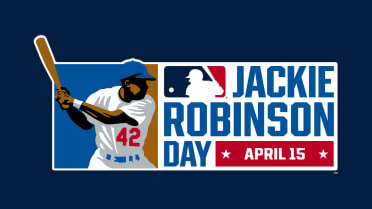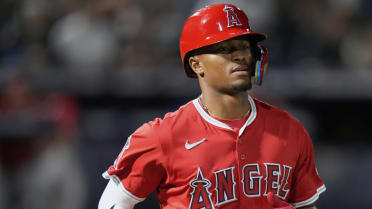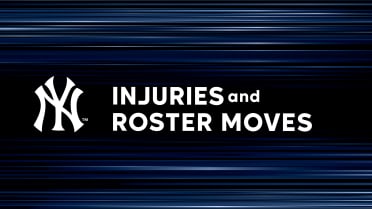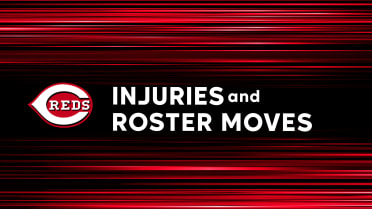Clint Hurdle was the phenom's phenom. A first-round Draft choice of the Royals out of high school in 1975, Hurdle passed up college opportunities in baseball and football that ranged from Harvard to Miami.
By the age of 20, Hurdle had already graced the cover of Sports Illustrated.
For all the hype, however, Hurdle took a few detours along the way in his playing career. He spent all or parts of 10 seasons in the big leagues with the Royals (1977-81), Reds ('82), Mets ('83, '85, '87) and Cardinals ('86), but appeared in more than 78 games only twice.
However, Hurdle has made his mark as a big league manager -- first with the Rockies, whom he guided to their only World Series appearance in 2007; and currently with the Pirates, whom he took over after 18 consecutive losing seasons in the spring of '11. After two additional seasons of disappointment, he led Pittsburgh to the postseason three consecutive years from 2013-15.
Now, the Pirates are regrouping -- and last September, despite back-to-back losing campaigns, Hurdle was given a four-year extension to remain the Bucs' manager.
Hurdle discussed his career in this week's Q&A:
MLB.com: Are you amazed at how things have turned out for you as a big league manager?
Hurdle: I'm fortunate I have had others who believed in me at times when I might not have believed in myself. Through those times, they gave me the strength, the confidence and the courage to go on and dream big. Hopefully, stories like mine give other people a chance to dream big and not be cut out of a cardboard box. You know, that feeling, "This is what I am and it's what I'm always going to be." It doesn't have to be that way.
MLB.com: So you are saying it's up to the individual to look ahead and see what can be?
Hurdle: Yeah. Use your eyes and your ears. Learn. Ask others for help along the way. You will get a couple of nice, strong doses of humility. You have to kick your ego to the curb, and let that go for good. [If] you get your chance, don't waste it.
MLB.com: Seems you are in a challenging time in Pittsburgh.
Hurdle: You embrace it. I love working for this organization. I am proud to be a Pirate. I want to do everything I can to move forward and bring a championship to the city. The players, the staff here, we are all in a good place.
MLB.com: When you got the first managerial job in Colorado, your first big league manager, Whitey Herzog, said he was proud of you. But he said he had to admit you were not one of his former players he thought would eventually manage in the big leagues.
Hurdle: God gave me a shot at managing in the big leagues. There wasn't a big line for that. A funny story. I was the hitting coach with the Rockies and [in May 2002], I got a call from general manager Dan O'Dowd. He said he wanted to meet with me at my house. We weren't playing well, and the offense wasn't doing well. When I got off the phone, I called my dad and said, "This is kind of crazy, but cool. I think the general manager is coming over to fire me. I won't have to go in [to Coors Field] and get cut loose, and then walk out." Three hours later, I called my dad and said, "You're not going to believe this …"
MLB.com: When you were dismissed after the 2009 season, you seemed to take it better than most.
Hurdle: I feel the way you walk in and the way you walk out are always going to be remembered. We had some success in the eight [seasons I was with the Rockies]. If I go out pointing fingers, yelling and screaming, it blows everything out of the water. I felt comfortable and confident it was a better place when I left than it was when I got there.
They felt it was time for a change. Why try hanging on to something you have no chance of hanging on to? They got back to the postseason that year, and I would be around town and people would say, "Aren't you bitter?" I said, "No. I am happy for everybody involved." There were too many people I respected there -- Dan, the players, Jim Tracy [who became manager] and the other coaches. I wanted good things for them. I felt in my heart I had a little bit to do with it, too.
MLB.com: You went right from playing to managing in the Minor Leagues. Did you feel at that time you had a future as a manager?
Hurdle: Never. I managed in the Minor Leagues, and that was fun. But it was the Minor Leagues, and I knew that. When I started to think it might happen is when I was the hitting coach in Colorado and was interviewed for the Diamondbacks' manager's job. I was sitting with people like Sandy Johnson and Joe Garagiola, Jr. -- people from another team who didn't know me, and they had interest in talking to me about the job. It was a tremendous experience. Bob Brenly got the job, and it turned out OK. They won the World Series.
MLB.com: You end up as hitting coach in Texas for a year, and that next fall, you interviewed for the Mets' and Pirates' managerial jobs.
Hurdle: I had a strong, engaging afternoon with the Mets, and I had a wonderful, engaging, strong interview with the Pirates. There seemed to be desire in Pittsburgh. The Pirates wanted me in the dugout. They wanted me in the clubhouse.
MLB.com: You had a couple of false starts to begin your time in Pittsburgh -- getting off to strong starts, but then struggling and falling below .500 by the end of the season.
Hurdle: It was hard. To the credit of everybody involved, we were steadfast in our beliefs. We just needed to improve our depth. We were playing the game the right way. We weren't playing it well enough. We had young players who were learning the depth of the 162-game schedule.
It was like the first time you get kicked off the playground and beat up. You go home and tell your dad. You go home and get big and strong and get better. We did that. The 2013 season came around, and we met those same challenges. There were opportunities for us to go the ground again, and we didn't. We pushed through it. It was fantastic.
MLB.com: Then came three years of success and now, it would seem, the Pirates are in a bit of a regrouping stretch again. The last two years, how tough were they?
Hurdle: [It was] hard, but you honestly self-evaluate. When you don't meet the demands of the game when they come up, where else can you go? We've faced the challenges a lot of teams do. Sometimes, we weren't getting the innings out of our starters, so we [couldn't use our bullpen when we wanted] but when we had to. Games got away from us. Offensively, we had a solid first two months, but then … I think it helps us keep in focus how hard it is to win. That's why it is the big leagues. When you do well here, there's no next level for moving up.
Tracy Ringolsby is a columnist for MLB.com.



